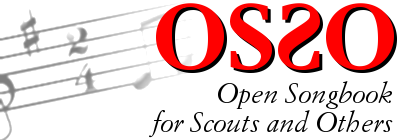Changes between Version 2 and Version 3 of WikiMacros
- Timestamp:
- Oct 29, 2015, 1:00:55 PM (10 years ago)
Legend:
- Unmodified
- Added
- Removed
- Modified
-
WikiMacros
v2 v3 3 3 [[PageOutline]] 4 4 5 Trac macros are plugins to extend the Trac engine with custom 'functions' written in Python. A macro inserts dynamic HTML data in any context supporting WikiFormatting. 5 Trac macros are plugins to extend the Trac engine with custom 'functions' written in Python. A macro inserts dynamic HTML data in any context supporting WikiFormatting. Its syntax is `[[macro-name(optional-arguments)]]`. 6 6 7 Another kind of macros are WikiProcessors. They typically deal with alternate markup formats and representation of larger blocks of information (like source code highlighting).7 The WikiProcessors are another kind of macros. They typically deal with alternate markup formats and transformation of larger "blocks" of information (like source code highlighting). They are used for processing the multiline `{{{#!wiki-processor-name ... }}}` blocks. 8 8 9 9 == Using Macros == … … 14 14 The list of available macros and the full help can be obtained using the !MacroList macro, as seen [#AvailableMacros below]. 15 15 16 A brief list can be obtained via ![[MacroList(*)]] or ![[?]].16 A brief list can be obtained via `[[MacroList(*)]]` or `[[?]]`. 17 17 18 Detailed help on a specific macro can be obtained by passing it as an argument to !MacroList, e.g. ![[MacroList(MacroList)]], or, more conveniently, by appending a question mark (?) to the macro's name, like in ![[MacroList?]].18 Detailed help on a specific macro can be obtained by passing it as an argument to !MacroList, e.g. `[[MacroList(MacroList)]]`, or, more conveniently, by appending a question mark (`?`) to the macro's name, like in `[[MacroList?]]`. 19 19 20 20 … … 102 102 def expand_macro(self, formatter, name, text): 103 103 t = datetime.now(utc) 104 return tag. b(format_datetime(t, '%c'))104 return tag.strong(format_datetime(t, '%c')) 105 105 }}} 106 106 … … 148 148 For example, when writing: 149 149 {{{ 150 {{{#!HelloWorld style="polite" 150 {{{#!HelloWorld style="polite" -silent verbose 151 151 <Hello World!> 152 152 }}} … … 160 160 One should get: 161 161 {{{ 162 Hello World, text = <Hello World!> , args = {'style': u'polite' }162 Hello World, text = <Hello World!> , args = {'style': u'polite', 'silent': False, 'verbose': True} 163 163 Hello World, text = <Hello World!> , args = {} 164 164 Hello World, text = <Hello World!> , args = None
